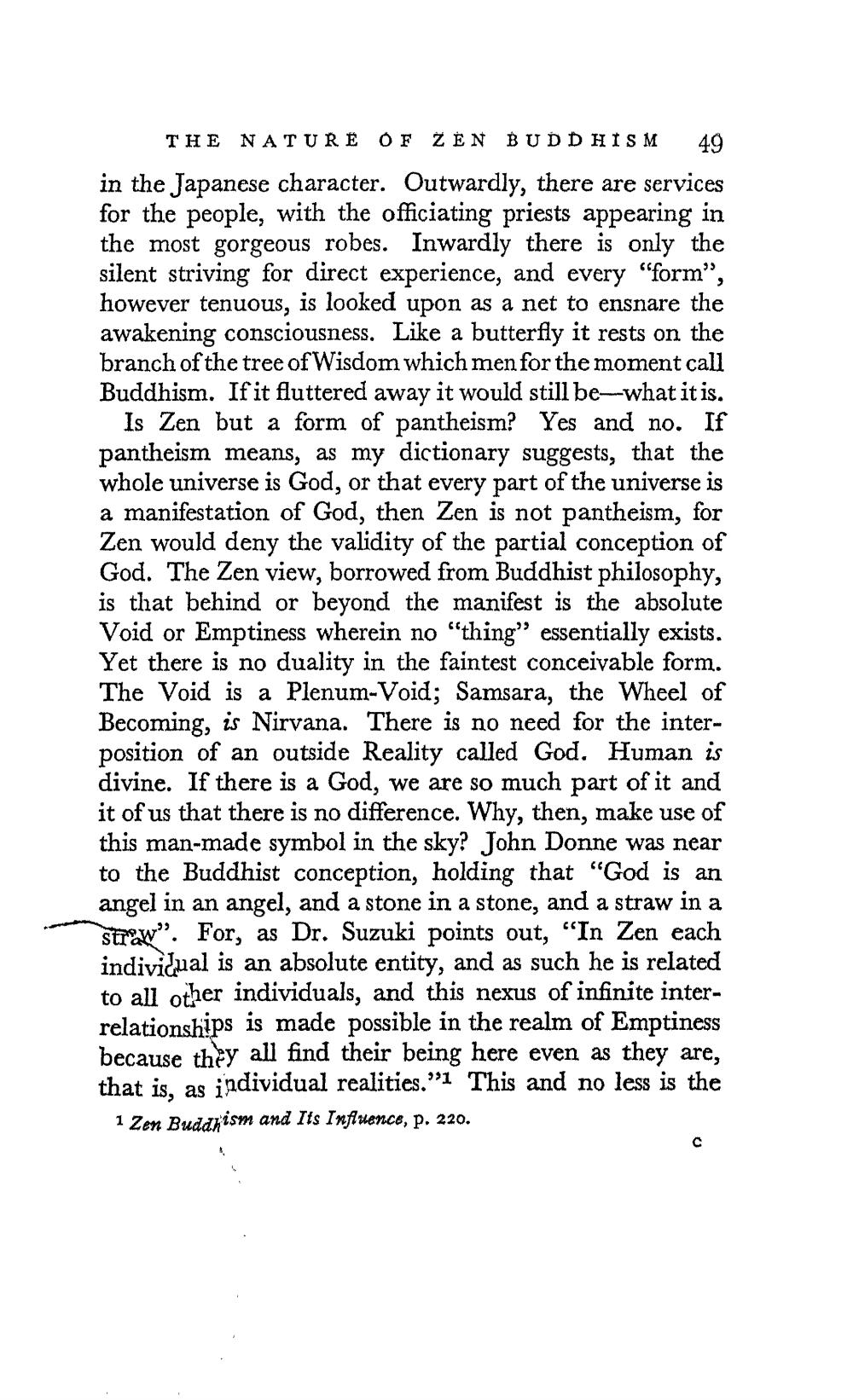________________
THE NATURE OF Z ÉN BUDDHISM 49 in the Japanese character. Outwardly, there are services for the people, with the officiating priests appearing in the most gorgeous robes. Inwardly there is only the silent striving for direct experience, and every "form", however tenuous, is looked upon as a net to ensnare the awakening consciousness. Like a butterfly it rests on the branch of the tree of Wisdom which men for the moment call Buddhism. If it fluttered away it would still be-what it is.
Is Zen but a form of pantheism? Yes and no. If pantheism means, as my dictionary suggests, that the whole universe is God, or that every part of the universe is a manifestation of God, then Zen is not pantheism, for Zen would deny the validity of the partial conception of God. The Zen view, borrowed from Buddhist philosophy, is that behind or beyond the manifest is the absolute Void or Emptiness wherein no "thing" essentially exists. Yet there is no duality in the faintest conceivable form. The Void is a Plenum-Void; Samsara, the Wheel of Becoming, is Nirvana. There is no need for the interposition of an outside Reality called God. Human is divine. If there is a God, we are so much part of it and it of us that there is no difference. Why, then, make use of this man-made symbol in the sky? John Donne was near to the Buddhist conception, holding that "God is an angel in an angel, and a stone in a stone, and a straw in a Straw". For, as Dr. Suzuki points out, "In Zen each individual is an absolute entity, and as such he is related to all other individuals, and this nexus of infinite interrelationships is made possible in the realm of Emptiness because they all find their being here even as they are, that is, as individual realities."1 This and no less is the
1 Zen Buddhism and Its Influence, p. 220.




